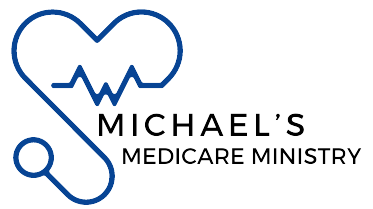Navigating Medicare can be confusing especially when it comes to filling the gaps that Original Medicare doesn’t cover. That’s where Medicare Supplement Plans, also called Medigap, come in. These plans are designed to help reduce your out-of-pocket expenses, offering peace of mind as you manage your health in retirement.
But with several plans available and varying levels of coverage, choosing the right Medicare Supplement Plan in Oregon can feel overwhelming. If you’re approaching age 65 or reviewing your coverage during open enrollment, understanding the essentials can help you make the most informed decision. Many individuals choose to consult with the best Medicare insurance broker in Beaverton to get personalized guidance and ensure they’re selecting a plan that aligns with their needs and budget.

📍 Location Information
If you’re seeking Medicare-related guidance locally, help is available at:
15125 SW Ruby Court, Beaverton, OR
📞 Call: +1 (503) 828-2328
📧 Email: wmichaeljarman@gmail.com
Why Medicare Supplement Plans Matter
Original Medicare (Parts A and B) covers many healthcare services, but it doesn’t pay for everything. You’re still responsible for:
- Deductibles
- Copayments
- Coinsurance
- Emergency care when traveling abroad
- Extended hospital stays
These costs can add up—especially if you need frequent medical services. That’s why many Oregonians consider a Medicare Supplement Plan to offset those expenses and gain greater predictability in their healthcare budget.
What a Medicare Supplement Plan Covers
Medigap plans are standardized and labeled by letter. Each plan provides a different level of coverage, but the benefits for each lettered plan remain the same no matter which insurance company offers it.
Most Medigap plans typically help cover:
- Part A coinsurance and hospital costs
- Part B coinsurance or copayments
- First 3 pints of blood
- Part A hospice care coinsurance
- Skilled nursing facility care coinsurance
- Foreign travel emergency services (in some plans)
It’s important to note that Medicare Supplement Plans do not include prescription drug coverage (Part D), dental, vision, or hearing services. These need to be purchased separately.
When to Enroll in a Medicare Supplement Plan
Your best opportunity to enroll in a Medicare Supplement Plan without medical underwriting is during your Medigap Open Enrollment Period, which starts the first day of the month you’re both:
- Age 65 or older, and
- Enrolled in Medicare Part B
During this six-month window, insurance companies can’t deny you coverage or charge more due to health conditions. If you apply after this period, you may be subject to medical underwriting.
Many people in Oregon choose to get guidance during this time to avoid missing key deadlines or making rushed decisions. Consulting someone familiar with the local Medicare landscape can help clarify plan options and enrollment steps.
How to Choose the Right Plan for Your Needs
Here are several factors to consider when selecting a Medigap plan:
✅ Healthcare Usage
If you see specialists regularly or expect frequent care, a plan that covers most out-of-pocket costs (like Plan G) may be worth considering.
✅ Budget Flexibility
While higher coverage plans reduce out-of-pocket costs, they may have higher premiums. Compare plan benefits carefully to match your monthly budget and expected medical needs.
✅ Travel Needs
Planning to travel outside the U.S.? Some Medigap plans offer emergency foreign travel coverage—a valuable benefit if you’re often abroad.
✅ Doctor Preference
Unlike Medicare Advantage plans, Medigap allows you to keep any doctor who accepts Medicare. That can be a big plus for those who prefer continuity in their care providers.
What to Know About Medigap in Oregon
In Oregon, there’s a unique rule called the “Birthday Rule.” It allows Medigap policyholders to switch to another plan of equal or lesser benefits without medical underwriting for 30 days following their birthday each year. This rule provides more flexibility than most states and allows you to shop around for better rates annually—something many residents are unaware of.
This is one of the reasons why individuals often seek out local insights before making a decision. Understanding state-specific rules can help protect your rights and maximize your benefits.
Avoiding Common Pitfalls
Choosing a Medicare Supplement Plan might feel straightforward, but many people overlook critical details. Here are some missteps to avoid:
- Not comparing plan letters – All plans with the same letter offer identical coverage, but premiums can vary by company.
- Waiting too long – Missing your initial enrollment period could lead to denial or higher premiums.
- Assuming it includes drug coverage – Medigap does not include Part D. You’ll need a separate prescription plan.
- Not understanding state-specific rules – Oregon’s Birthday Rule is a major benefit. Don’t miss the chance to change plans when eligible.
If you’re unsure where to start, many find it helpful to consult someone familiar with Medicare options in Beaverton who can explain plan differences in plain language.
📍 Location Information
If you’re seeking Medicare-related guidance locally, help is available at:
15125 SW Ruby Court, Beaverton, OR
📞 Call: +1 (503) 828-2328
📧 Email: wmichaeljarman@gmail.com
Frequently Asked Questions (FAQs)
1. Can I be denied a Medicare Supplement Plan if I have a pre-existing condition?
Not during your Medigap Open Enrollment Period. After that, insurance companies may require medical underwriting and could deny coverage or charge higher premiums based on your health history.
2. What is the difference between Medicare Advantage and a Supplement Plan?
Medicare Advantage is an all-in-one alternative to Original Medicare, usually with provider networks and extra benefits. Medicare Supplement Plans work alongside Original Medicare to reduce out-of-pocket costs but do not replace it.
3. Does my Medigap Plan cover additional health services like dental, vision, or hearing?
No, Medicare Supplement Plans are designed to help with out-of-pocket costs from Original Medicare, such as copayments, coinsurance, and deductibles. They do not typically cover services like dental care, vision exams, or hearing aids. You may need to look into separate policies if you want coverage for these areas.



